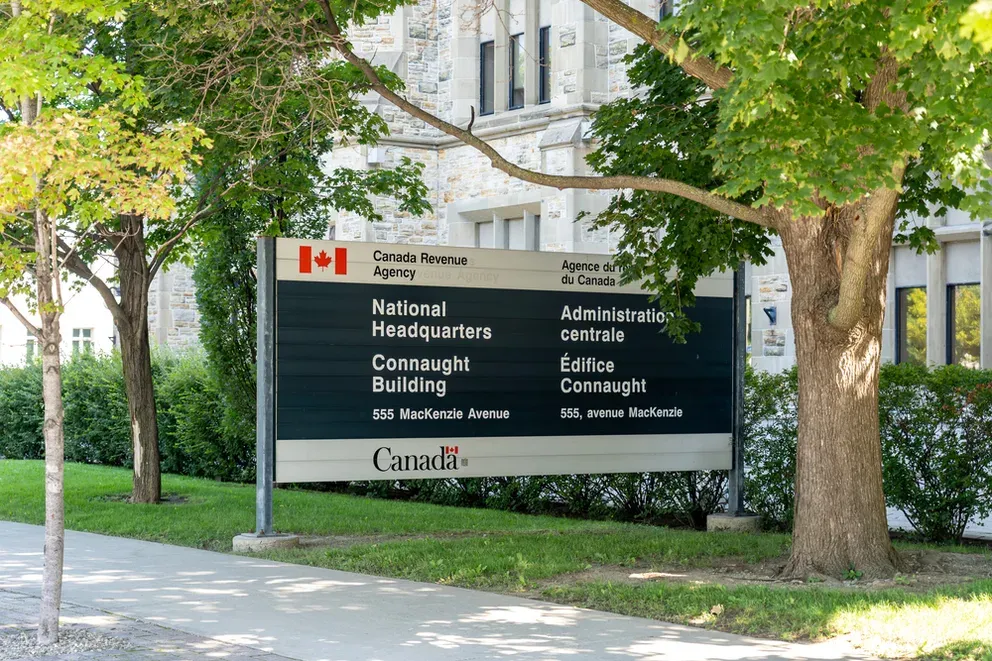What to do if you owe the CRA tax money.
May 2, 2024|Updated: October 17, 2024

It’s estimated that 1 out of 10 Canadians don’t file their taxes every year. This might be because they’re concerned that they’ll owe taxes and aren’t sure they can pay, or it might be because they’ve missed a few years in a row and are worried about the financial implications of multiple late filings – and late paying.
It might be because they’re unaware they need to file their taxes, because they’re younger Canadians, students, first-time filers, newcomers to Canada, or perhaps they had low-to-no income this past year and assume it means there’s no reason to file.
Why should you file?
By not filing, Canadians are missing out on all the credits and benefits that come with filing taxes. This includes things like the Canada Child Benefit, quarterly payments like the GST/HST credit or the Canada Carbon Rebate, the Canada Workers Benefit, disability tax credits and many more. A current tax filing is also needed to collect Employment Insurance or to apply for subsidized housing.
There’s a lot of confusion around tax filing. We surveyed Canadians and found that only 18% say they have a strong understanding of new tax credits and benefits, and almost 1 in 4 (24%) say they have no idea whether they’ll owe money or get a refund this tax season.
What should you do?
The most important thing is not to avoid doing your taxes, because you don’t want these problems to compound over time. And if you’re already in a situation where more than one tax year is accumulating, it’s best not to add to it.
If you owe taxes and miss paying on the tax deadline (April 30th), the Canada Revenue Agency (CRA) will charge you a 5% penalty on what you owe, plus an additional 1% for every month you’re late in filing for up to 12 months. But, if you’ve paid late in the past 3 years and received a notice from the CRA about it, then this year, you’ll likely be charged a 10% penalty on what you owe, plus an additional 2% for every month you’re late in filing.
Here's the plan.
Step 1: Confirm if you actually owe taxes. You can do so by going into an H&R Block office, dropping off your taxes with an H&R Block Tax Expert, uploading your tax documents remotely from home and working with one of our Tax Experts online, or using our online software. You might be surprised to learn you don’t owe taxes, and even more surprised to learn you’re getting a refund! If so, problem solved, and case closed. If not, move on to step 2.
Step 2: Review how much you owe, and if you have the means to pay it off right now. If you don’t have the money available to make the full payment, be proactive in speaking with your Tax Expert about how best to approach the CRA to negotiate a payment plan or instalments that can work for you.
- Various payment options can often be negotiated with the CRA, including “partial payment plans” or “payment arrangement plans.”
- There are even some programs in place where under certain circumstances the CRA can cancel or waive some or all interest rates or penalties.
- If you’re proactive with the CRA before they come to you, you’ll have an easier time managing the situation.
So far, the CRA has reported that approximately 65% of Canadians who have filed have received a refund, with an average amount of $2,100. For many Canadians, a refund of that size is akin to receiving an extra paycheque. More than 68% of H&R Block clients have received a refund so far this year.
Avoiding filing taxes is never the answer as the amount owed will escalate and the penalties will increase. The CRA also has the authority to pursue legal action, which can include taking money owed from Canadians income or financial accounts or putting a lien on or seizing assets.
If you’re ready to face your tax return head on, choose your preferred way to file your taxes, including using H&R Block’s online tax software, or get help in any of our almost 1,000 office locations across the country with an H&R Block Tax Expert.
Find an office near you to book an appointment today.